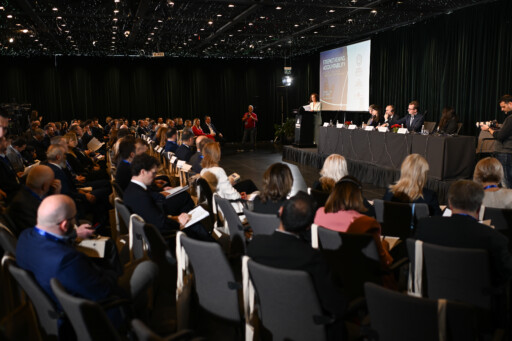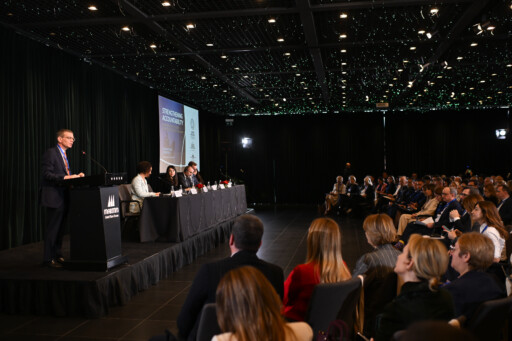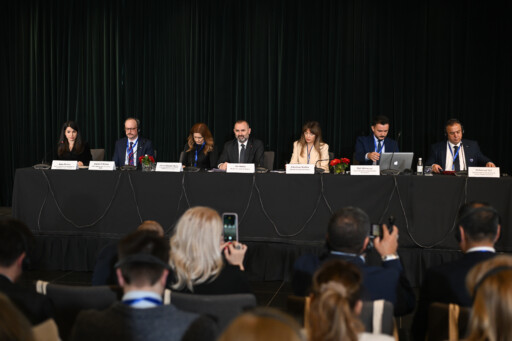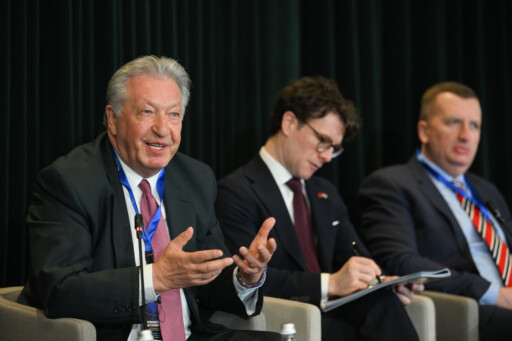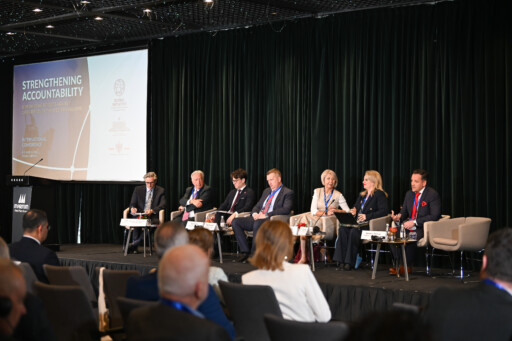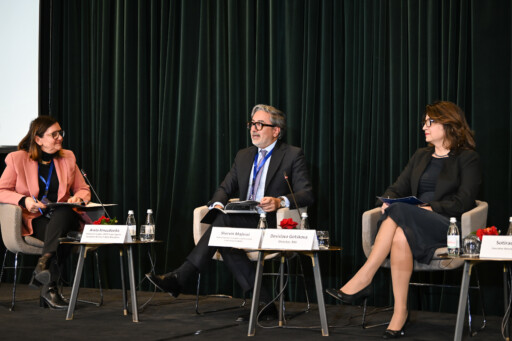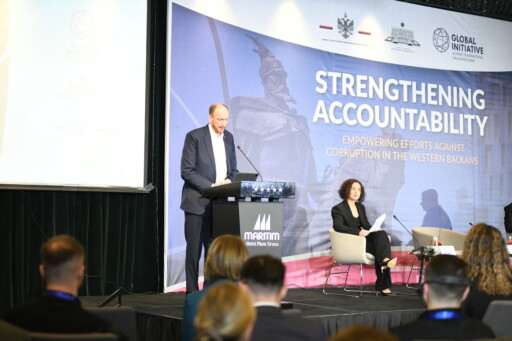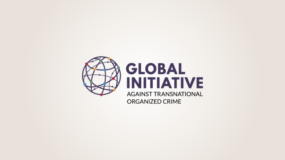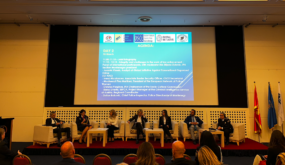Posted on 25 Mar 2024
A high-level international conference in Tirana, Albania, in early March 2024 brought together justice ministers from the Western Balkans, heads of anti-corruption agencies, police chiefs, prosecutors, representatives of international and regional organizations, and of civil society, the media and academia to discuss how to strengthen anti-corruption efforts to promote development and progress towards EU accession, and how to build a culture of integrity within institutions across the region.
Building on the foundation laid by a conference in Šibenik, Croatia, in May 2022, hosted by the Croatian Ministry of Justice and Public Administration in cooperation with the Global Initiative Against Transnational Organized Crime (GI-TOC), the March 2024 conference, entitled ‘Strengthening accountability: Empowering efforts against corruption in the Western Balkans’, was hosted by Albania’s Ministry of Justice and State Ministry for Public Administration and Anti-Corruption, in collaboration with the GI-TOC and with the generous support of the UK Government.
The hosts emphasized their commitment to anti-corruption measures and the professionalization of public administration as part of their ongoing efforts to join the EU. Adea Pirdeni, Albania’s newly appointed state minister for public administration and anti-corruption, highlighted the government’s focus on institutional reform. ‘The Albanian government is fully dedicated to improving and transforming institutions, aiming to boost efforts towards increasing the administration’s professionalization’, stated Pirdeni.
Ulsi Manja, Albania’s justice minister, highlighted the country’s 2016 judicial reform as a successful anti-corruption measure, including the vetting process for prosecutors and judges. ‘[The vetting process] was the most courageous and deepest anti-corruption instrument ever implemented to “clean” the justice system, not only in the region but beyond,’ said Manja. He also stressed the value of ensuring that new specialized judicial institutions in the areas of corruption and organized crime can operate independently, free from external pressure or influence. ‘Quality must prevail over quantity, and what must prevail above all else are the standards of fair judgment,’ he concluded.
Silvio Gonzato, EU Ambassador to Albania, spoke of the universal challenge of corruption, citing an annual loss of around €180 billion to corruption in the EU. He noted the EU’s commitment to the Western Balkans region through technical and financial support totalling €6 billion in loans and grants for the period 2024–2027. In turn, Andrew Preston from the UK’s Foreign, Commonwealth and Development Office discussed the need to address corruption not only as a moral obligation but for the security and development of societies. He highlighted the value of an inclusive approach involving civil society, the media and academia; the challenges and opportunities presented by technology; and the need for cross-border cooperation. Fighting corruption is a core element of the EU accession process, and Preston noted the UK’s strong support for the integration of the Western Balkans into the EU.
‘This is not only a problem of a few dubious individuals,’ said Tuesday Reitano, the GI-TOC’s deputy director. ‘It takes two to tango; one to offer a bribe and another to accept it … Corruption is what links the upperworld and the underworld, and builds contacts between criminal actors, public servants and the private sector … We need to view efforts to strengthen integrity as an important end in itself but also a key factor – even a prerequisite – for shrinking illicit economies.’
The GI-TOC’s Observatory of Illicit Economies in South Eastern Europe presented its latest anti-corruption study, Organized corruption: Political financing in the Western Balkans, published in June 2023. This report sheds light on ‘organized corruption’ – a symbiosis of organized crime, criminal methods and high-level corruption – by analyzing three components: the financing of political parties and elections, political influence and control over public enterprises, and political use and control of public procurement.
‘The whole-of-society approach is widely regarded as the most effective means of addressing critical issues with enduring and significant impacts in society,’ said Fatjona Mejdini, director of the GI-TOC’s Observatory of Illicit Economies in South Eastern Europe. As such, the conference aimed to ‘bridge the gaps and facilitate dialogue and exchange, to enhance relationships and coordination among various stakeholders, including local, regional and international actors in the fight against corruption,’ she concluded.
Several themes were explored through panel discussions, each chosen for its role in the broader anti-corruption framework in the region, including:
- leadership and political will to promote a culture of integrity;
- promoting transparency in the management of political financing in the Western Balkans;
- national strategies and experiences in preventing corruption;
- achievements, challenges and expectations of international/EU anti-corruption commitments;
- enhancing the integrity and independence of prosecutors and police;
- the role of women in strengthening integrity in public institutions; and
- the importance/impact of civil society and anti-corruption education.
The conference was attended by representatives from a range of institutions, demonstrating the global commitment to tackling these pervasive issues. These included the United Nations Office on Drugs and Crime; Eurojust; Europol; the Regional Anti-Corruption Initiative; Transparency International; the British Embassy in Tirana; Albania’s Ministry of Internal Affairs; Albania’s Special Anti-Corruption Structure; Albania’s National Bureau of Investigation; the US Embassy in Tirana; the Southeast European Law Enforcement Center; the Rule of Law and Anti-Corruption Center; and the Organization for Security and Co-operation in Europe.
The Šibenik conference was a landmark event that led to the publication of the Šibenik conclusions, a set of findings that identified the main gaps in relation to corruption and organized crime in the region, as well as key objectives and strategic priorities for the six Western Balkan countries. The aim of the Tirana conference was not only to continue the dialogue started in Šibenik, but to take it further by reaching a new set of actionable commitments, which are captured in the Tirana conclusions.
